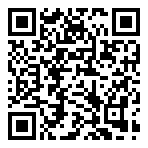
Preferred Blog
Preferred has been serving the Tinley Park area since 1991, providing IT Support such as technical helpdesk support, computer support, and consulting to small and medium-sized businesses.
A Brief Look at Virtual Assistants
There is no doubt that you have come across the virtual assistant (or voice assistant). Whether you have it on a smartphone or you use it via a digital speaker in your home, you have probably spent some time using some type of virtual assistant.
Today, virtual assistants are integrated into several products: phones, smart hubs, cars, and more. These virtual assistants, fueled by truckloads of data, can be quite useful for an individual, but what needs to happen before they can actually be trusted for business?
Virtual Assistants Aren’t All That Beneficial
Virtual assistants, for all that has been made of them, are still limited in their effectiveness. With their simple, direct line of operation--command, action, response--they don’t offer a lot, right now. They are useful to sync to some smart things (maybe), sync to your music, tell you the weather forecast, and a load of other simple functions that could be labeled “useful”, but aren’t going to help a person all that much.
Beyond that limited technology, however, you are looking at the future, where touch is replaced by voice. Some of the most powerful companies in the world are all-in on the development of this technology. Apple has Siri, Google has Google Assistant, Samsung has Bixby, Amazon has Alexa, and Microsoft has Cortana. Those are some heavy hitters developing this technology. It must be important, right?
It is. For them.
Voice gives organizations the chance to intimately know individual consumers. This type of personalization is exactly what modern consumers use, even if it serves to creep them out. With practical uses of smartphones unquestioned--and the utility of smart speakers (and other distribution methods of these applications) growing--it’s only a matter of time where it will be successfully integrated to the workplace.
For that to happen there needs to be:
Computing Improvements
While cool, what do you expect to do with your Echo Dot or Google Home Mini? Not very much. The competition between vendors will drive innovation of this technology forward faster than it would without it, but if the only benefit of these devices is to search databases with your voice, it will continue to be a middling product. There will need to be a concerted effort to improve these products, and their attached services if they ever want to be useful in the workplace.
Enhanced Perception
The application developers have an uphill battle ahead of them. In order to completely understand the intricacies of human communication, you have to be able to ascertain tone, syntax, and even non-verbal cues. While microphone technology is improving, it stands to reason that virtual assistants will need to make massive improvements on how they understand a person’s voice if they are ever going to be a useful tool.
Greater Trust
Unfortunately, these companies did this to themselves. The most significant hurdle in the adoption of virtual assistants is the data collection strategy behind them. People simply do not trust that these devices, and the companies that manufacture them, can be trusted. If the past decade of data collection practices is any indication of how these companies are going to operate, you’re better off with a pad of paper. For now, the technology needs to be viewed as a tool, rather than a rule. Meaning that virtual assistants are a technology that is in its infancy and shouldn’t be trusted.
What are your thoughts about virtual assistants? What benefits do you think they can provide the average worker? How do you use your virtual assistant? Leave your thoughts in the comments section below.
Sign Up for Our Newsletter
Latest Blog Entry
For years, Facebook was the undisputed king for businesses seeking online engagement. Its massive user base offered unparalleled reach, connecting companies with billions globally. Sophisticated tools allowed precise audience targeting based on demographics, interests, and b...
Latest News
Best Places to Work - 5 YEARS STRONG!!
Preferred is once again, honored for being a Best Place to Work for the fifth straight year! Our team is what makes Preferred a Best Place to Work.
Daily Herald Suburban Business 2024 Best Places to Work Honorees The Daily Herald Suburban Business has announced the names of 51 companies, in 5 categories of competition, that are honored as the 2024 Best Places to Work in Illinois. This statewide survey and awards program was designed to identify, recognize and honor the best places of employment in Illinois, benefiting the state's economy, its workforce and businesses.




Comments